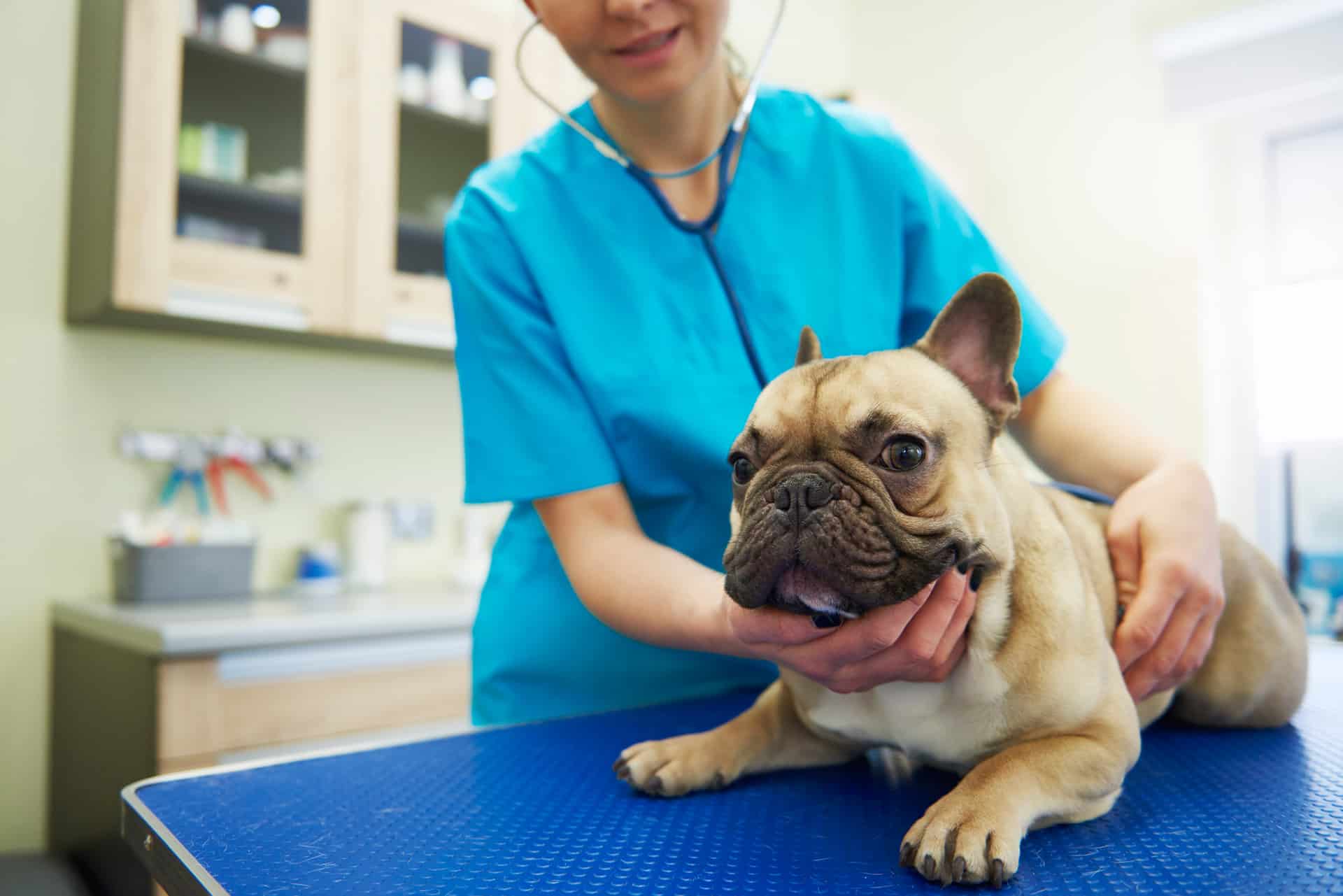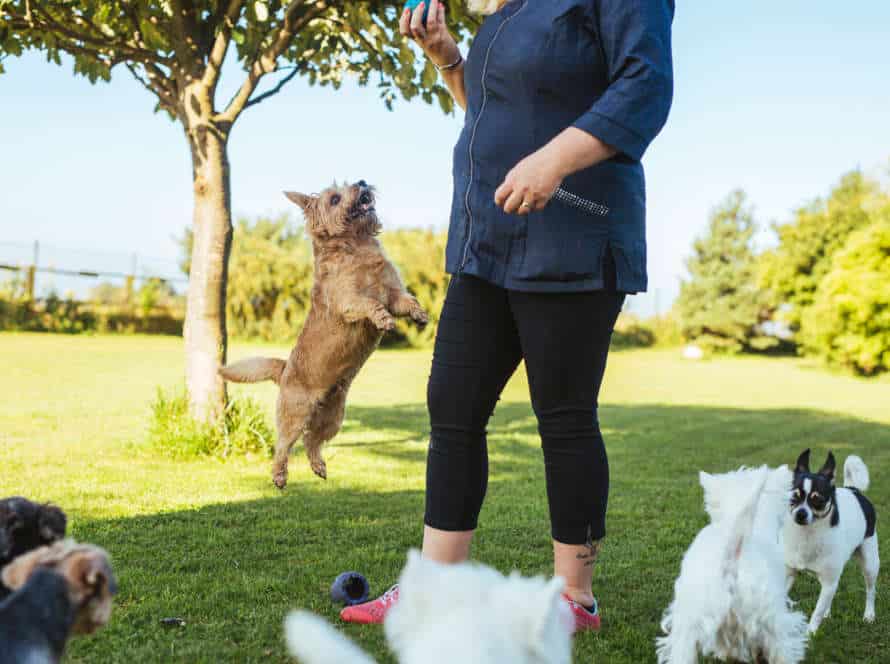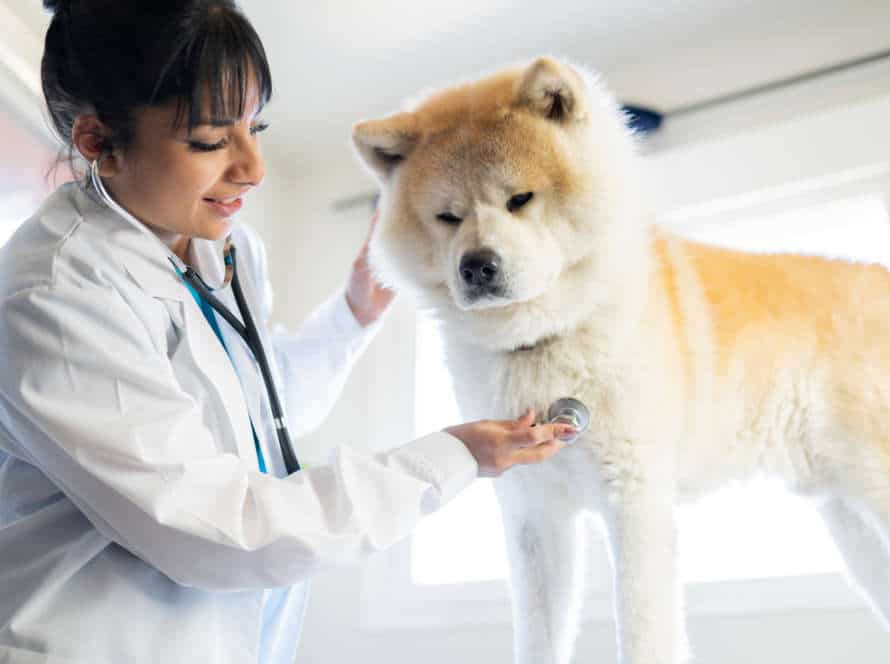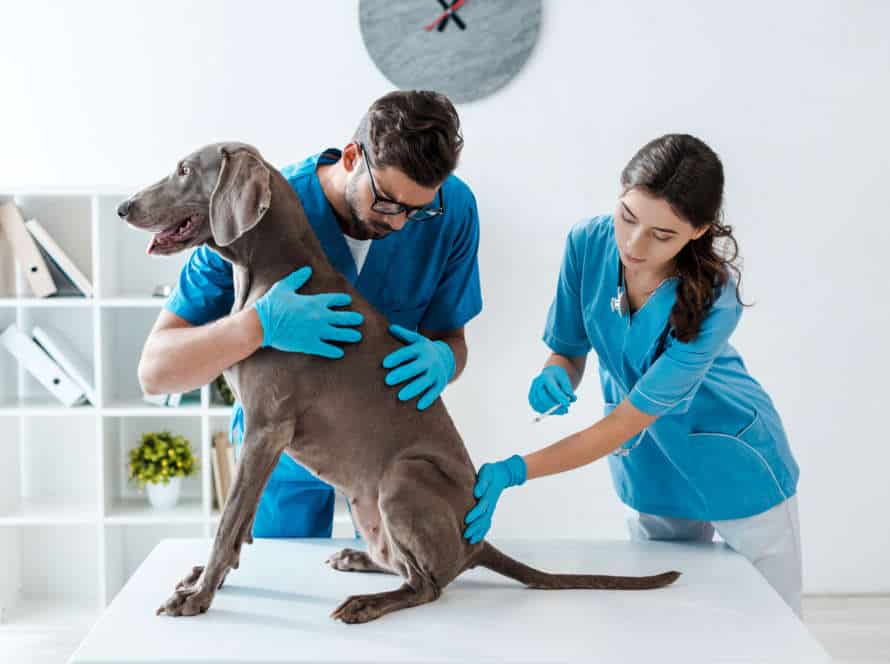The Role of Hormones in Dog Behavior
Hormones are key to dog behavior. Testosterone and estrogen are two of the most important. Testosterone influences male characteristics and behavior, such as aggression and marking. Estrogen is key in female reproductive cycles and motherly behaviors.
Cortisol and adrenaline hormones prompt the fight or flight response. This response is caused by stress, danger, or anxiety. When released, these hormones increase heart rate, blood pressure, and energy levels.
It is essential to comprehend the role of hormones in dog behavior. This helps owners recognize normal and abnormal behavior. It allows them to manage their dog’s behavior for safety and for others.
Hormones and Aggression in Dogs
Pups are social critters that use hormones to relate with their surroundings. These hormones are chemicals made in their bodies. Hormones, especially those that manage the flight-or-fight reaction, have an effect on canine aggression. This article will explain how hormones contribute to aggressive behavior in dogs.
Testosterone and its effect on aggression
Testosterone, a hormone found in both male and female pooches, plays a big part in managing behavior such as aggression. Uncontrolled testosterone can lead to more aggressive doggos. Neutering can help control the hormone and reduce aggressive behavior.
Here’s how hormones affect doggie behavior:
- Testosterone: This hormone is responsible for aggression, territory behavior, and fighting. In males, testosterone levels increase from 6 months, causing sexually dimorphic behavior.
- Estrogen: This hormone is responsible for female doggy behavior, such as maternal instincts and extra focus on babies.
- Progesterone: Progesterone levels raise when pregnant, making aggression lower and mothering stronger.
- Oxytocin: The love hormone, oxytocin links doggies and their owners. It decreases stress, increases trust, and boosts social connections.
Estrogen and its effect on aggression
Estrogen is a hormone that affects aggression levels in female dogs.
If they’re not spayed, heat cycles can cause surges of estrogen. This can result in more aggressive behavior or mood swings. It can also lead to nasty or dangerous activities like biting or attacking. Especially in pre-estrus and estrus phases when estrogen levels are highest.
Medication which reduces estrogen or spaying can help control aggression levels. Understanding hormones which cause aggression can help owners and trainers take steps to manage these behaviors.
Other hormones that may influence aggression
Apart from testosterone and estrogen, other hormones can influence a dog’s aggression. Like cortisol, which increases in response to fear and anxiety. High levels of cortisol may lead to reactivity and aggression.
Oxytocin is known as the “love hormone”. Low levels of oxytocin have been linked to increased aggression in dogs.
Vasopressin regulates the body’s water balance and blood pressure, and also affects social behavior and aggression. Low levels of vasopressin can lead to increased aggression towards other dogs.
Understanding the role of these hormones can help dog owners and trainers develop effective strategies for managing and modifying aggressive behavior.
Hormones and Fear in Dogs
Interest in hormones and their effect on dog behavior is growing. Researchers are keen to know the cause of anxiety and fear in canines. Cortisol and prolactin are two main hormones which can affect a dog’s behavior. They can trigger fear and also affect a dog’s ability to learn. This article will explore how these hormones can influence a dog’s behavior and how they can lead to fear in dogs.
Cortisol and its effect on fear
Cortisol, often called the “stress hormone,” is crucial for a dog’s fear response. When a pup is in a tense situation, the body releases cortisol. This triggers the “fight or flight” response.
How does cortisol affect a pup’s fear? High levels make them more skittish and reactive. Harder to manage stressful situations too.
Plus, high cortisol levels make it tough to learn new things or behaviors. Memory retention is also affected, particularly for past stressful experiences.
Therefore, managing cortisol levels is key. To help dogs live happily and healthily, it’s essential to minimize stress.
Oxytocin and its effect on fear
Oxytocin is a hormone that helps reduce fear and anxiety in dogs. It affects their behavior too. High levels of it can be calming during stressful times, like vet trips and storms. Studies suggest that giving oxytocin to dogs can make them trust humans more, reducing aggression.
Cuddling and petting increase oxytocin levels. This can help reduce fear and create a better bond between dogs and their owners.
Other hormones that may influence fear
Apart from cortisol and adrenaline, other hormones may affect a dog’s fear. For example, estrogen, which is linked to spikes in female dogs’ anxiety and fear during heat cycles. Male dogs with high testosterone may show more aggression and fear, especially towards other males. Oxytocin, known as the “love hormone”, can boost a dog’s anxiety and fear when levels are high. Thyroid hormones out of balance can lead to fear-related behavior. Knowing how these hormones work can help identify a dog’s fear issues and come up with suitable treatments or training programs.
Hormones and Reproductive Behavior in Dogs
Hormones in dogs are responsible for lots of behaviors. These include how they react to other animals, their aggression and how they reproduce. Hormones are essential for controlling when and how strong a dog reproduces. Plus, they can change other behaviors too. Let’s look closer at the role hormones play in a dog’s reproductive behavior and how they affect other behavior.
The role of testosterone in reproductive behavior
Testosterone plays a major part in male dog reproductive habits. This hormone is responsible for developing male sex organs, secondary muscles and characteristics, and expressing male mating behavior.
Testosterone is produced by the testes, then enters the bloodstream and reaches the brain and other parts of the body to control behavior. In male dogs, testosterone triggers pheromone production, which attracts female dogs and shows they are ready to mate. It also raises aggressive and territorial behavior, helping male dogs take control and compete with other males for mating.
Knowing the role of testosterone in canine behavior is essential for dog owners and breeders to manage and prevent unwanted behaviors like aggression or marking. Talk to a vet to decide the best approach to hormone management for your dog.
The role of estrogen in reproductive behavior
Estrogen is an important hormone for female dogs. It controls the estrus cycle and influences mating and maternal behavior. When the estrus cycle is running, estrogen increases. This causes physical changes like swelling of vulva, urinating more, and being restless.
Estrogen also gets the body ready for mating by making lubricants and relaxing the muscles around the reproductive organs.
After mating, estrogen helps nurture the motherly instincts by making milk and enlarging the mammary glands.
It’s important to maintain a balance of estrogen, to prevent health problems like mammary tumors and pyometra.
Pro tip – Regular vet visits and spaying/neutering your pet can help balance estrogen and decrease the chance of breeding and reproductive health issues.
Other hormones that may influence reproductive behavior
Testosterone and estrogen are the main hormones affecting a dog’s reproductive behavior. But, oxytocin and progesterone also have an influence.
Oxytocin helps with social bonding and maternal behavior. It’s released when a dog is nursing, being groomed, or when it gets physical touch from its owner.
Progesterone keeps pregnancy going and regulates a dog’s reproductive cycle. Higher levels of progesterone mean a dog is likely in heat and can become pregnant.
These hormones impact a dog’s aggressiveness, territory protection, and mating. Knowing the effects of these hormones can help you give better care and training to your pup.
Pro Tip: Go for regular vet check-ups and hormone tests to make sure your dog’s hormone levels and reproductive behavior are normal.
Hormones and Social Behavior in Dogs
Hormones affect a dog’s social behavior. Testosterone, oxytocin and vasopressin are three of them. Dogs with high levels of these hormones are more aggressive and territorial. Whereas, lower hormone levels lead to more relaxed and social behavior. Let’s explore the role of these hormones in detail.
Oxytocin and its effect on social behavior
Oxytocin is a hormone that has a big effect on social behavior in dogs. When it is released, it can help them in various ways. Such as:
- Strengthening trust and bonding between the dog and its owner.
- Reducing aggressive behavior.
- Enhancing their learning and memory.
- Boosting their social communication skills.
By understanding oxytocin’s role, pet owners and trainers can use this knowledge to make their dogs happier and better at socializing.
Vasopressin and its effect on social behavior
Vasopressin is a hormone that’s key for social behavior in dogs. It helps produce bonding, attachment and territorial behavior. When a dog does things like groom, play or mate, vasopressin is released. This helps create a connection between the dog and its owner or mate.
Low levels of vasopressin in dogs can lead to anxiety, stress and aggression. It is also linked to fear of new environments or separation anxiety.
To better train and manage pets, knowing the role of hormones like vasopressin in dog behavior is important. Hormones can impact a dog’s mood, personality and behavior. Taking this into account can be vital when trying to make a good relationship between the pet and its owner.
Pro Tip: Consistent training, positive reinforcement and regular exercise can be used to balance hormones and foster healthy social behavior with dogs.
Other hormones that may influence social behavior
Testosterone and estrogen are famous hormones that shape pooch conduct. In any case, there are numerous different hormones that assume a basic part as well!
Oxytocin is frequently called the “adoration hormone” as it supports social holding and connection. It increments when dogs socialize with their proprietors or different canines in a positive way.
Cortisol is a hormone discharged during pressure. At low portions, it can advance attentiveness and inspiration. Yet, at high dosages, it can cause nervousness and animosity.
Vasopressin is like oxytocin in its impacts on social holding and connection. It’s been connected to guarded conduct and hostility in male pooches.
The degrees and parity of these hormones profoundly influence a pooch’s social and conduct inclinations. Comprehending them can help proprietors better deal with their pet’s conduct.
Hormonal Imbalances and their Impact on Dog Behavior
Hormones are vital for a dog’s health, both mentally and physically. Imbalances in particular hormones can change a dog’s behavior dramatically, such as aggression, fear, and other behavioral issues. In this article, we will discuss the different hormone imbalances and their influence on the dog’s behavior and wellbeing.
Hypothyroidism and its effect on behavior
Hypothyroidism in dogs can lead to many behavioral changes. These can include lethargy, aggression, anxiety, and excessive barking.
This is caused when the thyroid gland does not make enough hormones. It is more common in older dogs.
If you notice any of these behaviors, talk to a veterinarian. They can diagnose and treat hypothyroidism. This can be done through medication and dietary changes.
Hormones are important for a dog’s well-being. To help prevent hormonal imbalances, feed them a balanced diet. Exercise and regular vet checkups are also important.
Hyperadrenocorticism (Cushing’s syndrome) and its effect on behavior
Hyperadrenocorticism, known as Cushing’s syndrome, is a hormone disorder that impacts a dog’s behavior, energy, and mood. It leads to several behavioral changes, including increased thirst and appetite, restlessness, and anxiety.
Hormones play a key role in dog behavior. They regulate physiological and psychological processes in a canine’s body.
If you think your dog has hormonal imbalances, take them to the vet for diagnosis and treatment. With the right care, most hormonal imbalances can be managed and your pup can live a happy and healthy life.
Pro tip: Exercise, diet, and grooming can help regulate your dog’s hormones and improve their behavior.
Other hormonal imbalances and their effects on behavior
Hormonal problems can have a major effect on pup behavior. It is key for pet parents to spot the signs and symptoms of such imbalances. Besides the regular thyroid-related issues, other hormonal issues can also change a dog’s behavior. Such as those related to adrenal and reproductive hormones.
Adrenal imbalances can cause a variety of symptoms. For example, too much cortisol (Cushing’s disease) could lead to over-excitement, panting too much and lack of exercising.
Reproductive hormone imbalances can also be very influential in a dog’s way of behaving. Studies point out that an overproduction of testosterone in males might bring higher aggression and dominance towards other dogs.
Therefore, pet owners need to take note of any unusual behavior in their pup and look for veterinary help to identify and treat the hormonal imbalances responsible.
Pro tip: Consult your veterinarian if you spot any strange changes in your dog’s behavior. As blood tests can detect hormonal imbalances, which can be treated with medication or dietary adjustments.
Frequently Asked Questions
Q: What are hormones in dogs?
A: Hormones are chemical messengers in dogs that are produced by glands and released into the bloodstream to regulate various body functions and behaviors.
Q: How do hormones affect dog behavior?
A: Hormones play a significant role in regulating dog behavior, including aggression, fear, anxiety, and reproduction. They can affect a dog’s mood, energy levels, and overall temperament.
Q: Which hormones are responsible for dog behavior?
A: Hormones such as cortisol, adrenaline, testosterone, estrogen, progesterone, and oxytocin are known to have an impact on dog behavior in different ways.
Q: Can hormonal imbalance cause behavior problems in dogs?
A: Yes, hormonal imbalance can lead to a wide range of behavior issues in dogs, such as excessive barking, separation anxiety, aggression, fear, and hyperactivity.
Q: Can hormone therapy help treat behavior problems in dogs?
A: Yes, hormone therapy can be an effective treatment option for behavior problems in dogs caused by hormonal imbalances. However, it should only be prescribed by a veterinarian after proper diagnosis.
Q: What can I do to maintain hormonal balance in my dog?
A: Regular vet checkups, proper nutrition, exercise, consistency in training, and a stress-free environment can help maintain hormonal balance in your dog and prevent behavior problems.







